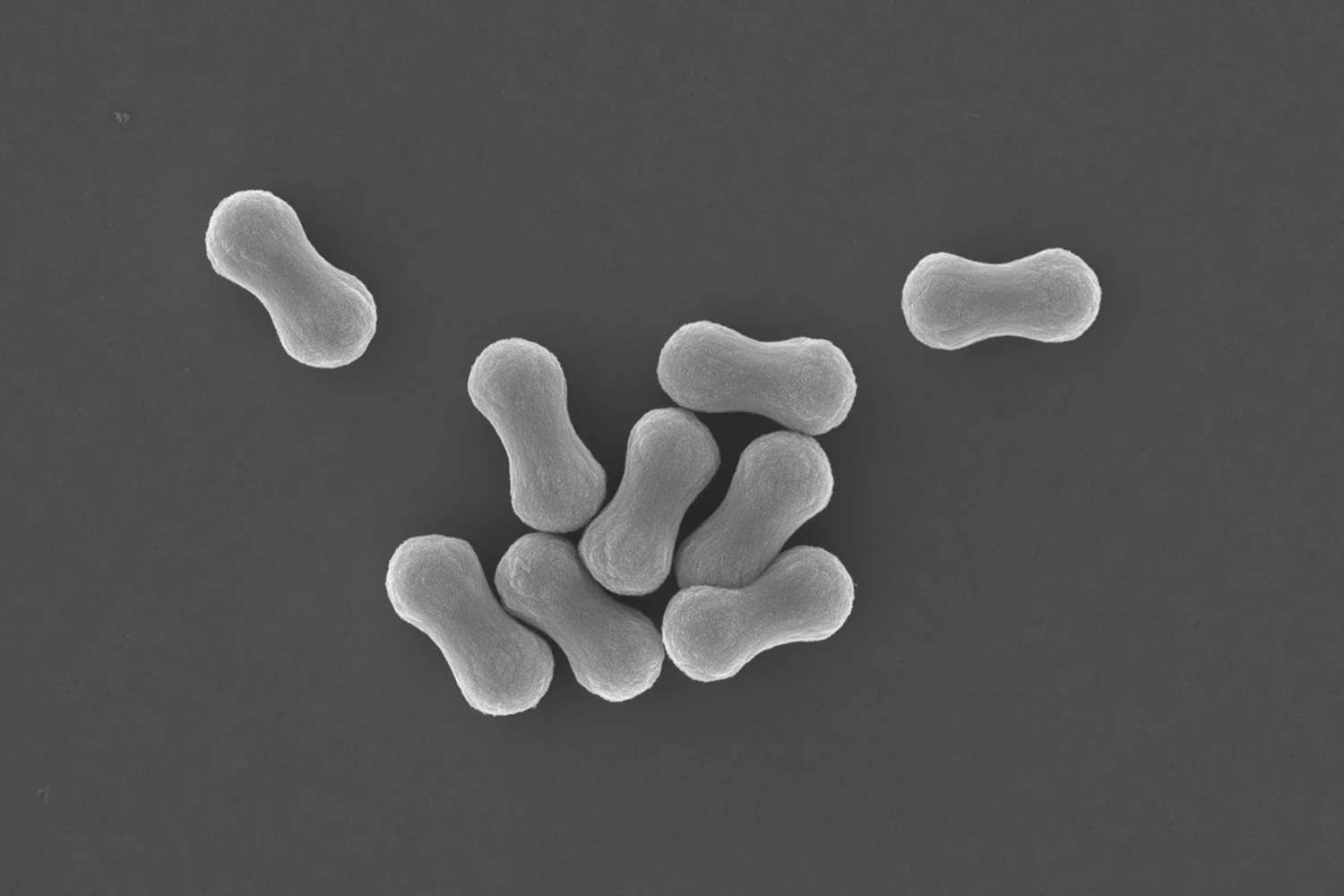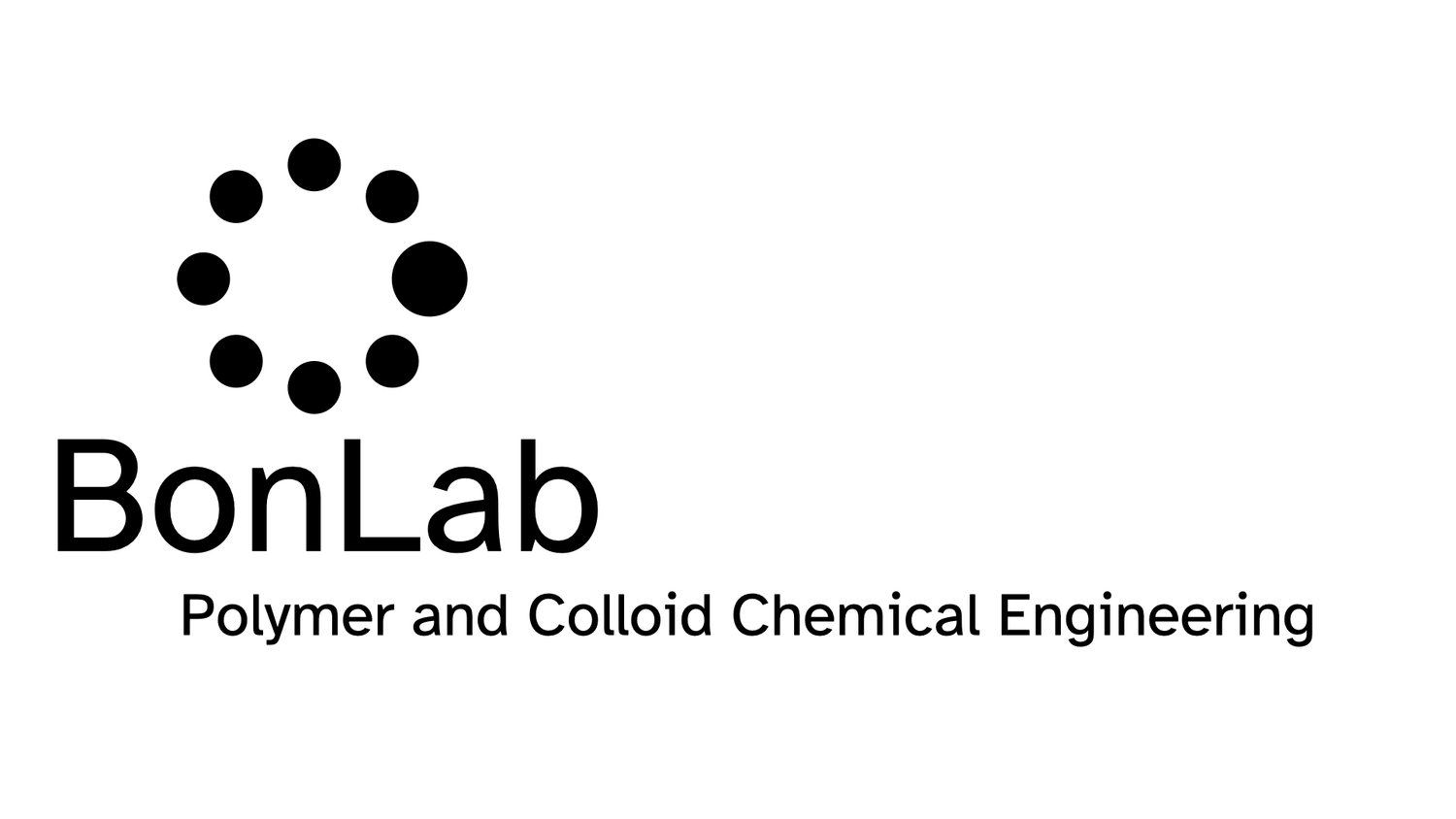
BONLAB BLOG
Thoughts
&
Scientific Fiction
Water-based nanocapsule dispersions for tuneable energy storage
Phase change materials, also known as PCMs, can capture, store, and release energy when they undergo a phase transition. One class of PCMs with relatively high latent energy storage capabilities are alkane-based waxes. These store energy upon melting and will release it again when they solidify through crystallization. To make use of this so-called latent heat is helpful for many applications, and indeed can be found, for example, in building insulation and temperature regulation materials. If, however, we would like to use this concept in a temperature-regulating fluid, we need to disperse the PCMs into a liquid, such as water, that in itself has a high heat capacity and thus the ability to store energy.
Phase change materials, also known as PCMs, can capture, store, and release energy when they undergo a phase transition. One class of PCMs with relatively high latent energy storage capabilities are alkane-based waxes. These store energy upon melting and will release it again when they solidify through crystallization. To make use of this so-called latent heat is helpful for many applications, and indeed can be found, for example, in building insulation and temperature regulation materials. If, however, we would like to use this concept in a temperature-regulating fluid, we need to disperse the PCMs into a liquid, such as water, that in itself has a high heat capacity and thus the ability to store energy.
Creating a dispersion of PCMs is a complex task that presents an intellectual challenge. If we were to emulsify molten wax using ordinary surfactants into droplets dispersed in water, a problem would arise upon cooling. When certain wax droplets crystallize, these will touch other droplets in their vicinity triggering crystal growth and fusion of the droplets. The emulsion is destabilized and, upon heating, will not return to its original state. This complexity underscores the urgent need for innovative solutions in the field of materials science.
The solution to this challenge is to encapsulate the wax. This involves surrounding the wax droplets with a protective shell that prevents fusion. However, a new problem arises when the capsules are large, such as in the micron length scale or upwards. In these cases, the capsules can still jam together and obstruct the flow of the liquid. To overcome this, we need to miniaturize the entire system and fabricate wax nanocapsules that remain colloidally stable throughout their application. This approach not only solves the problem but also allows us to blend nanocapsules containing different waxes, thereby tuning the energy storage characteristics.
Our paper recently published in the Royal Society of Chemistry journal Polymer Chemistry and entitled: “Phase change material nanocapsules for latent function thermal fluids with tuneable thermal energy storage profiles” does exactly that.
We prepared mini-emulsions, which are stable tiny droplets of various methacrylates in the presence of trimethylolpropane trimethacrylate (TMA) as a crosslinker, and n-hexadecane (HD), n-octadecane (OCT), and n-docosane (DOC) as PCM. One important aspect was to use an ω-unsaturated poly(n-butyl methacrylate-b-[(methacrylic acid)-co-(methyl methacrylate)]) macromonomer as a reactive macromolecular emulsifier, to secure colloidal stability of our nanocapsule systems. The performance of a thermal fluid of DOC nanocapsules was tested against water, with promising results. As a tunability concept, crosslinked poly(methyl methacrylate) nanocapsules of n-octadecane (OCT) and n-docosane (DOC) were blended as a tuneable latent function thermal fluid.
You can read the paper here:
Triple awards for Emily, Josh, and Max.
A fantastic triple accomplishment by people from BonLab at the 2023 Chemistry graduation celebrations at the University of Warwick.
A fantastic triple accomplishment by people from BonLab at the 2023 Chemistry graduation celebrations at the University of Warwick.
From left to right. Emily Brogden, Josh Davies, Stefan Bon, and Max Campbell.
Emily Brodgen was the winner of a chemistry graduate teaching award, and Josh Davies was commended. These awards celebrate outstanding contributions to undergraduate laboratory teaching and demonstrating. Max Campbell won a chemistry students community building award, for his outstanding contributions to the Warwick Chemistry students’ community.
Prof. dr. ir. Stefan Bon says: “I am immensely proud of Emily, Josh, and Max. Not only do they do fantastic research in our team, they show that they also care and have tremendous talents and energy for the wider scientific community at Warwick. I am delighted their hard work and commitment has been recognized by the Chemistry Department in this years awards ceremony.”
Josh Davies wins a Warwick SEM Faculty Award for teaching
Josh Davies has won a postgraduate SEM Faculty Award at the Warwick Award for Teaching Excellence (WATE) 2023.
Josh Davies has won a postgraduate SEM Faculty Award at the Warwick Award for Teaching Excellence (WATE) 2023.
Josh said: “Much of my teaching is based in the teaching laboratories, where I have had the pleasure of teaching Year 1-3 UG students and several PGT courses. I have designed and delivered a series of workshops for the third-year Polymer and Colloid Science module and created a series of posters to communicate theory, practical skills, and assessment for use in UG labs. My teaching focuses on an enquiry-based approach to learning and creating an immersive style of delivery founded on clear communication of expectations, fostering a sense of the students being co-creators in their learning, which continuously receives positive feedback from students and teaching observations.”
Prof. dr. ir. Stefan Bon says: “This is fantastic. It is great to see that Josh’s enthusiasm for teaching has been recognised and awarded by the Faculty of Science, Engineering and Medicine. I am very happy that the team at BonLab helps out and contributes to the teaching and training of students at Warwick University, especially in polymer and colloid science and engineering. Josh did an excellent job this academic year.”



